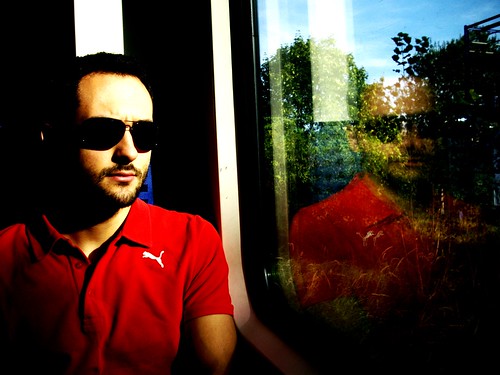Nativity of the Lord (Mass During the Day)
My dear friends, do you know how young people these days decide to get married? I recently met a happily engaged couple, who are excitedly looking forward to their wedding day next year. When I asked them how they met, I was a little surprised at their reply. They told me that a mutual friend had set them up. This good samaritan had guessed that the two might hit it off. And he was right. The couple discovered that they had actually been schoolmates years before. And that they had many other friends in common. Which led them to think that, if they could both get along with so many of the same people, there was a good chance they would also enjoy each other’s company as well. And they did. They agreed to meet… And now they find themselves eagerly looking forward to marriage.
So how do young people, in this day and age, come to meet and then decide to get married? Well, at least for this pair, what made all the difference was that kaypoh mutual friend of theirs. That self-appointed matchmaker. Having studied in the same school, it’s likely that the couple would probably have seen each other many times before. Yet they didn’t recognise one another as potential partners for life. Not till someone took it upon himself to arrange their first meeting. Helping each of them to recognise and accept the other as a candidate for marriage. And, by the way, this same couple is now looking to return the favour. I’m told that strenuous efforts are currently being made to set up that mutual friend of theirs. To matchmake the matchmaker. Who happens to still be single and available.
Who would have thought that, even in this modern day and age, where almost everyone is supposedly plugged in and connected to one another, a matchmaker could still help to transform mundane meetings into exciting engagements and joyful marriages? But what has all this got to do with Christmas? Well, it’s true that, in our Mass readings today, no mention is made of matchmakers. Much less of meetings leading to marriages. And yet, we do find a process that looks very similar. If not meetings resulting in marriages, then a seeing that leads to song.
In the first reading, we’re told that the watchmen of Jerusalem raise their voices, they shout for joy together. Why? For they see the Lord face to face. And the responsorial psalm tells us to sing a new song to the Lord. Why? For he has worked wonders. And all the ends of the earth have seen the salvation of our God. A profound seeing that leads to joyful song. This is what we find in our readings today. This is what all of us Christians are supposed to experience on a regular basis. Seeing our God coming to save us, we ought to find ourselves moved to raise our voices in joyful song. And not just our voices, but our whole lives should be lived as songs of praise offered to God. Not unlike how, having met each other for the first time, that young couple was moved to recognise one another as spousal material. And to eventually decide to joyfully commit themselves to each other in marriage.
A seeing that leads to joyful song. This is how the Christian life is supposed to be lived. And yet, my dear friends, how many of us actually experience this on a regular basis? In the ups and downs of daily living, how many of us can honestly say that we are able to see the Lord coming to save us? How many of us find ourselves moved to sing the praises of God? Are we not just as likely to relate to God in the same way that those two former schoolmates treated each other before they were formally introduced? Even if we may see, again and again, the saving presence of our God, we are often unable to recognise it as such. And with this failure of recognition comes the inability to rejoice. The reluctance to sing. Indeed, are we not more likely to raise our voices in complaint than in praise?
Yet we are not alone in feeling this way. The gospel tells us that this was also the experience of many people at the Lord’s first coming. He was in the world that had its being through him, and the world did not know him. He came to his own domain and his own people did not accept him. Like us, they too saw but could not sing. And can we blame them? For when the Word was made flesh and lived among us, for some mysterious reason, he chose to come as a helpless baby. One unable to find a better birthplace than in a manger surrounded by filthy farm animals. One who would, when he had grown up, challenge the religious authorities of his day. And then be executed as a convicted criminal. Only to be rumoured to have been raised to life on the third day. Someone who lived between obscurity and controversy. Is it any wonder that people refused to accept him?
Even so, there were those who did. Those who were able to see and recognise him as the One that the second reading calls the radiant light of God’s glory. The First-Born Son, whom all the angels of God worship. And the gospel tells us that to all these fortunate people, who were able to recognise and accept him, he gave power to become children of God. Power, in other words, to rejoice and to sing the praises of their heavenly Father. And not just with their voices. But in the way they lived their lives.
But how, we may ask, did these people succeed where so many others failed? How were they able to see in so profound a way as to be led to break out in joyful song? They didn’t do it on their own. They had help. The first reading speaks of a joyful messenger bringing news of peace. How beautiful on the mountains, are the feet of one who brings good news, who heralds peace, brings happiness, proclaims salvation… And the gospel points us more specifically to the person of John the Baptist. The one who comes as a witness. Helping others to recognise the Light when it shines upon them… Just as that happily engaged couple benefitted from the efforts of a matchmaker, so too did those who recognise Christ at his first coming benefit from the ministry of John the Baptist.
And what about us? Could this be the real reason why we celebrate Christmas? Why we need to celebrate Christmas? And celebrate not just today, but for all of the next two weeks of the Christmas Season? During this time, we will allow the liturgy to become our holy matchmaker. Helping us to see and to recognise Emmanuel. The God who regularly enters our lives to save us. To save us from our burdensome self-absorption. Our often soul-crushing routine. As we gaze upon the Christmas crib. As we ponder over the readings and prayers at Mass. We allow all of these to become our John the Baptist. To help us recognise how God comes to save us. Perhaps not in spectacular ways. But in ordinary yet mighty ways. Mighty in the way that a baby lying on a bed of straw can be mighty. Having the power to penetrate hearts so often hardened by the cares and distractions of life. To penetrate and to disarm them. To turn them from darkness to light. From self-centredness to compassion. From blindness to sight. From complaint to praise.
My dear friends, if it is indeed true that Christmas is about being led from meeting to marriage, from seeing to song. Then what must we do to pay closer attention to the matchmaker this Christmas?


